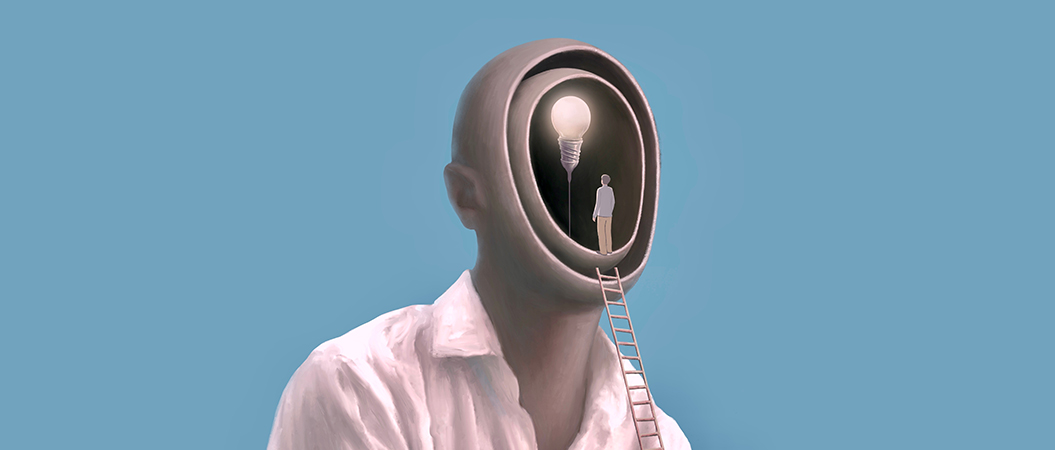What’s the Use of Philosophy?
Sometime when I was in varsity, I was having a conversation with a friend and though I can’t quite recall the gist of the conversation I do distinctly remember one moment. It was the moment in which my attempt to interest her in discussing philosophy was met with the response: “What’s the use of philosophy?”
This question genuinely disturbed me. Mainly because I was already such an adherent of philosophy that I thought it’s ‘use’ or rather its intrinsic value was self-evident to everyone, or at least everyone I associated with, working under the assumption that I tended to associate with intelligent people.
I’ve come to realise that the way I see philosophy is quite different from the way most people see it. For me, philosophy is the process of interrogating the basic assumptions that inform my approach to life. Whether we’re conscious of it or not, none of our actions exist in a vacuum. They’re all informed by certain assumptions we’ve made about how the world works that we ourselves may not even be able to articulate.
The fact that we cannot spontaneously articulate these assumptions is reason in itself to begin the process of interrogating them. This process involves questions such as: What are these assumptions? Where do these assumptions come from? Are they objectively true? How have these assumptions affected my decision-making? But of course, the most important question of all, the question around which all the others must gravitate, is: Should I continue to base my decisions on these assumptions?
I believe the critical mind must always be willing to discard even the most deeply held belief if it’s proven to be irrelevant, useless or harmful. Moreover, if you’re not willing to have your beliefs challenged, then you’re not willing to grow. Like most people, I’ve never been a fan of rejection, especially romantic rejection. But there was a time this kind of rejection would infuriate me, and I believe that philosophy allowed me to change my perspective and stop responding to rejection with anger.
When I was younger, if a girl I showed an interest in wouldn’t give me the time of day, I would say things to myself like: ‘She was actually ugly anyway’, ‘She’s just a snob or ‘She has bad taste in men’. It was only once I looked deeper into my own anger that I realised that all these sentiments were just an attempt to console myself and more importantly, that the reason being rejected angered me so much was that I was working from the assumption that any woman I show an interest in should automatically be interested in me as well. When put under scrutiny, this assumption is revealed to be short-sighted and dangerous.
More than anything, it’s insecurity that fuels this kind of assumption, generating the conclusion that any case of rejection must mean that there’s something wrong with me or the person doing the rejecting. It’s a zero-sum game with almost no basis in reality. This, and many other experiences, have forced me to interrogate the assumptions that inform the way I interact with other people, and have led me to develop a new assumption to replace the old which, although incomplete and thus vulnerable to error, is still much healthier and realistic than the set of assumptions I began with.
There are people who see value in what you can add to their lives and there are people who don’t. You need to act accordingly but keep in mind that there’s nothing malicious behind the actions of those who don’t see any value. They’re simply responding to what’s important to them and ignoring the rest. They’re just being human.
All you can do is firstly, have the courage to go for what you want, whether it’s a job, a relationship, a scholarship or whatever and secondly, to put your best foot forward when you do go for it. If you do that, regardless of the outcome, you can be at peace with yourself, because you did your part. In the end that’s all you can do. Because that’s all you can control. The rest is out of your hands.
When I interrogate my assumptions, I realise that a great deal of the things I believe are actually nonsense I picked up from school, media, family, friends, or any number of sources, and swallowed whole without any thought to evaluating them before doing so. A number of these idiotic assumptions I actually generated myself while operating on the misguided yet all too human idea that I’m the centre of the universe. If there’s any one lesson we can take from studying great philosophers, from Plato to Confucius and Descartes to Kant, it’s to question everything, especially our own perspectives.
I’ve thought about that conversation since then and I’ve been confronted with the same question, albeit in different ways, by different people, in different contexts, quite a number of times. And having matured a little, I no longer take offense to the question, “What’s the use of philosophy?” I’ve come to realise that in fact most people don’t see any value in philosophy and the institutions of philosophy share a lot of the blame for this sorry state of affairs.
For my purposes, I don’t want to go into a long explanation of how philosophy was created and what it was originally intended to achieve. I think it suffices to say that the word ‘philosophy’ comes from the Greek philosophia, meaning ‘love of wisdom’ and the first definition of the word ‘wisdom’ that comes up from a Google search is ‘the quality of having experience, knowledge, and good judgement.’ As much as I’ve met many people who claim not to see any use in philosophy, I’ve never encountered a person who says they don’t see any use in wisdom. Maybe when we talk about philosophy we just need to keep the other word in mind.

